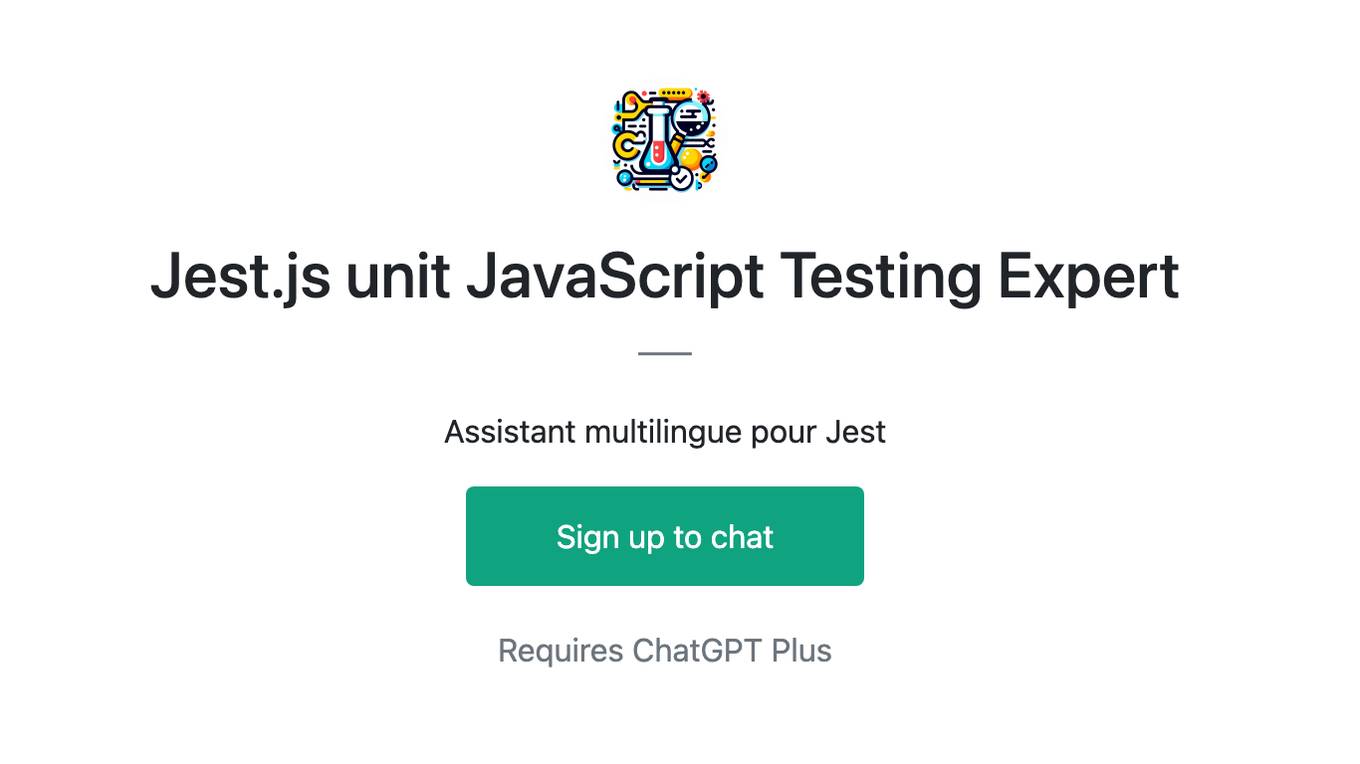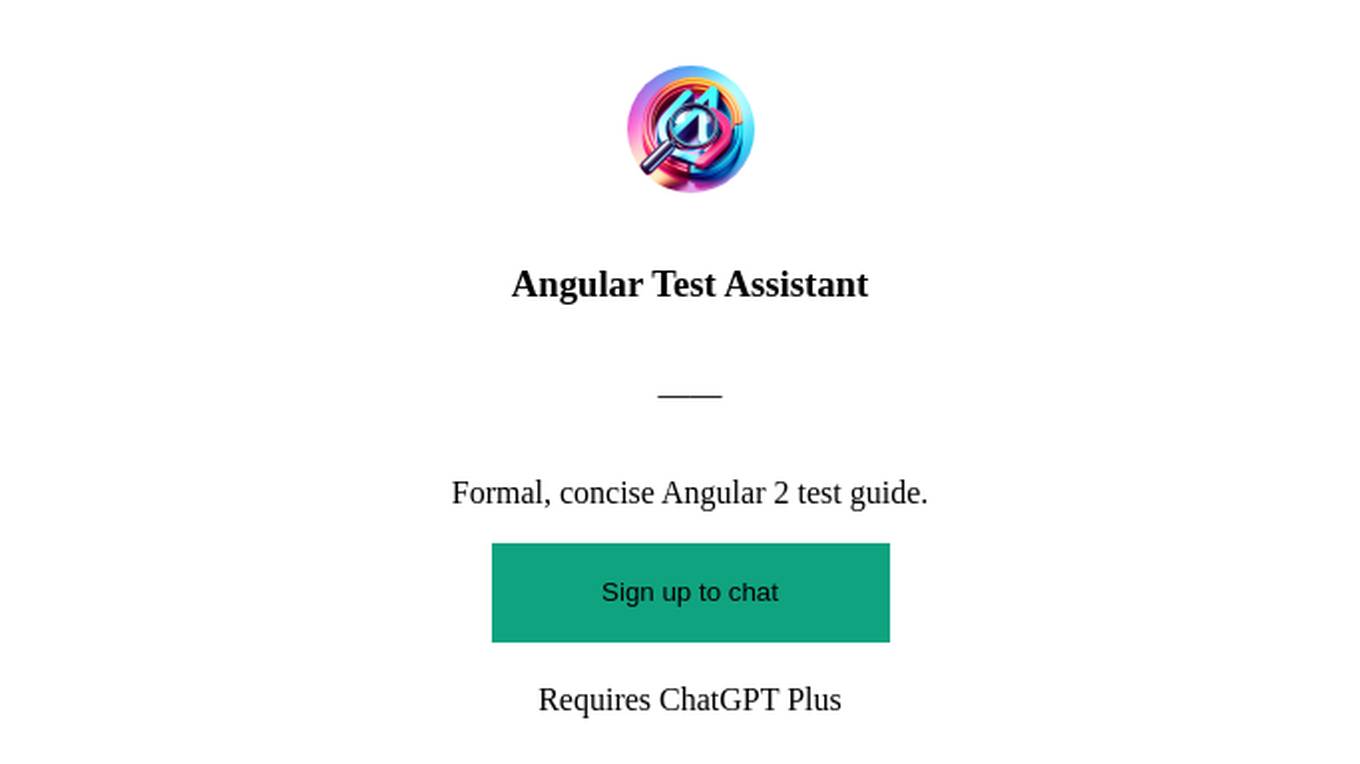Best AI tools for< Run Tests Locally >
20 - AI tool Sites
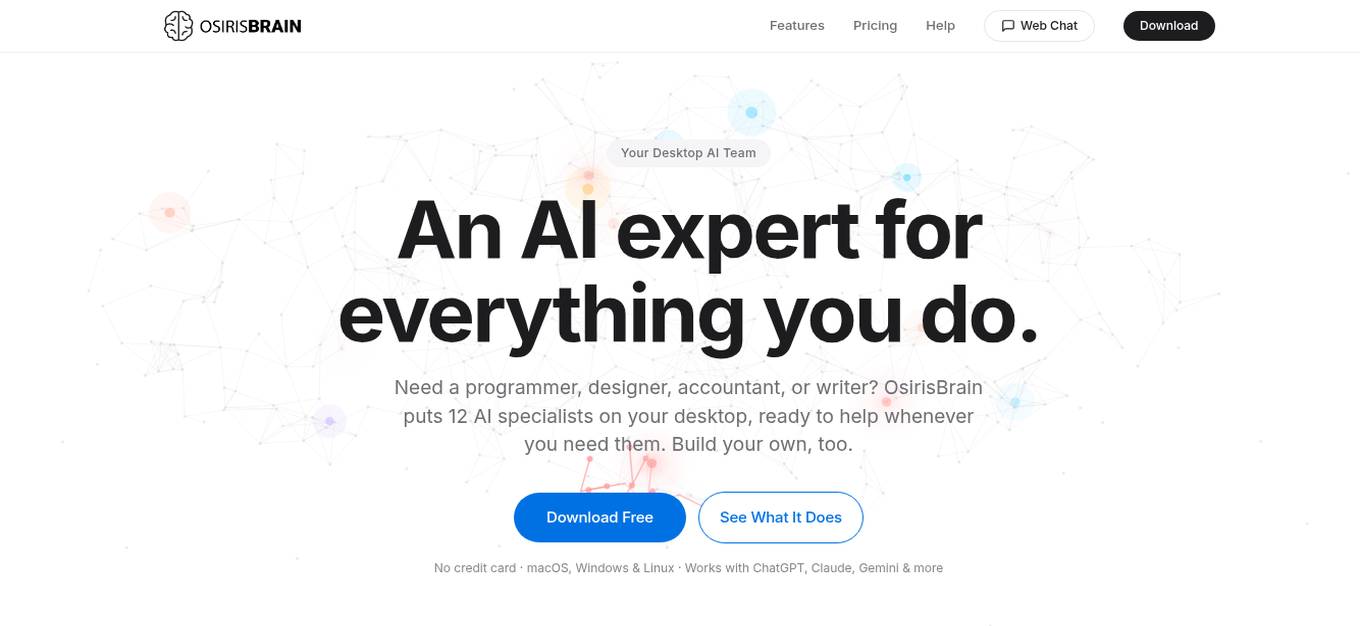
OsirisBrain
OsirisBrain is an AI desktop agent that offers autonomous AI automation for Mac, Windows, and Linux. It provides users with access to 12 AI specialists on their desktop, each with a specialized system prompt tuned for their domain. The application evolves autonomously by analyzing, coding, testing, and deploying new specialized skills in real-time. OsirisBrain runs locally on the user's machine, ensuring data privacy, and offers features such as custom skill building, remote chat, vision capabilities, multi-provider connectivity, zero-config memory, learning loop, plugin manager, voice input, system monitor, and more. Users can use OsirisBrain for 3 hours free per day and benefit from features like Guardian Mode, End-to-End Encryption, Parental Mode, and a Cortex Memory System that mimics a real brain's memory architecture.
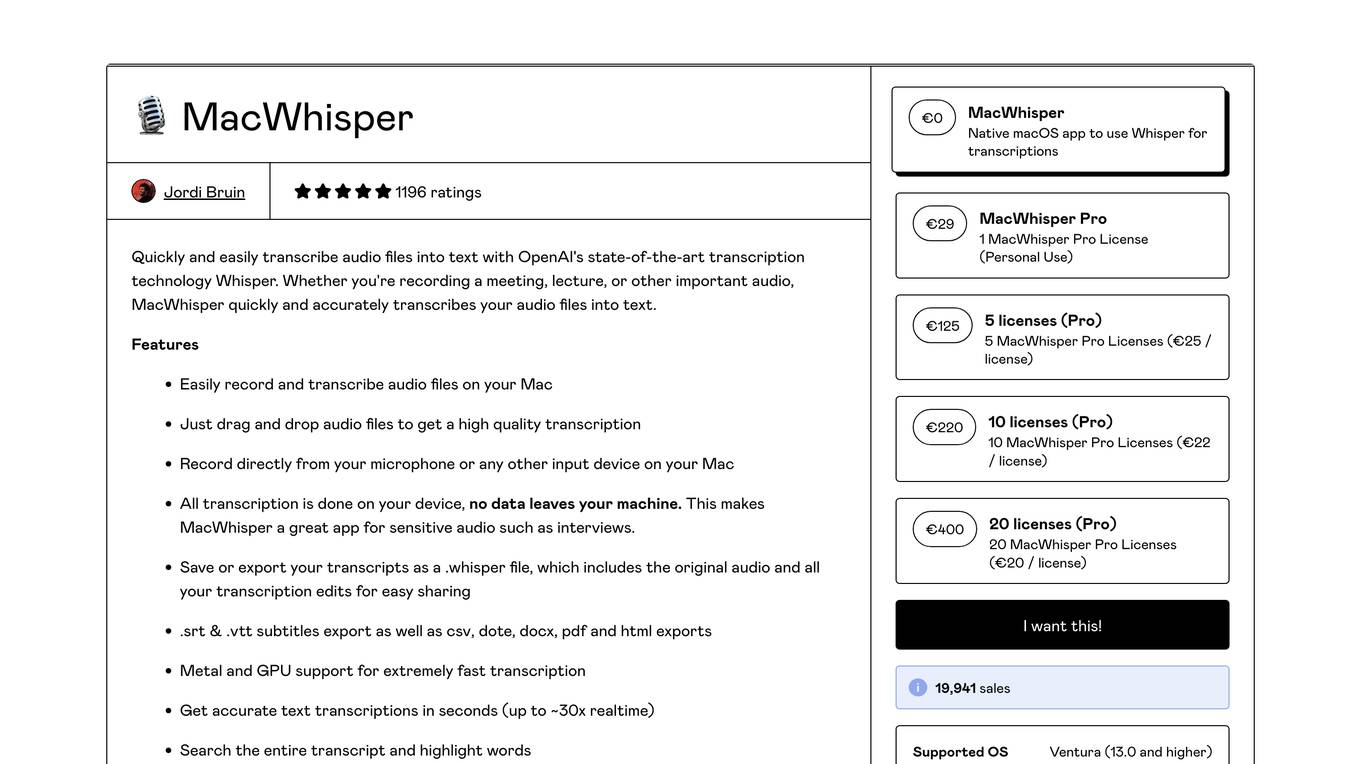
MacWhisper
MacWhisper is a native macOS application that utilizes OpenAI's Whisper technology for transcribing audio files into text. It offers a user-friendly interface for recording, transcribing, and editing audio, making it suitable for various use cases such as transcribing meetings, lectures, interviews, and podcasts. The application is designed to protect user privacy by performing all transcriptions locally on the device, ensuring that no data leaves the user's machine.
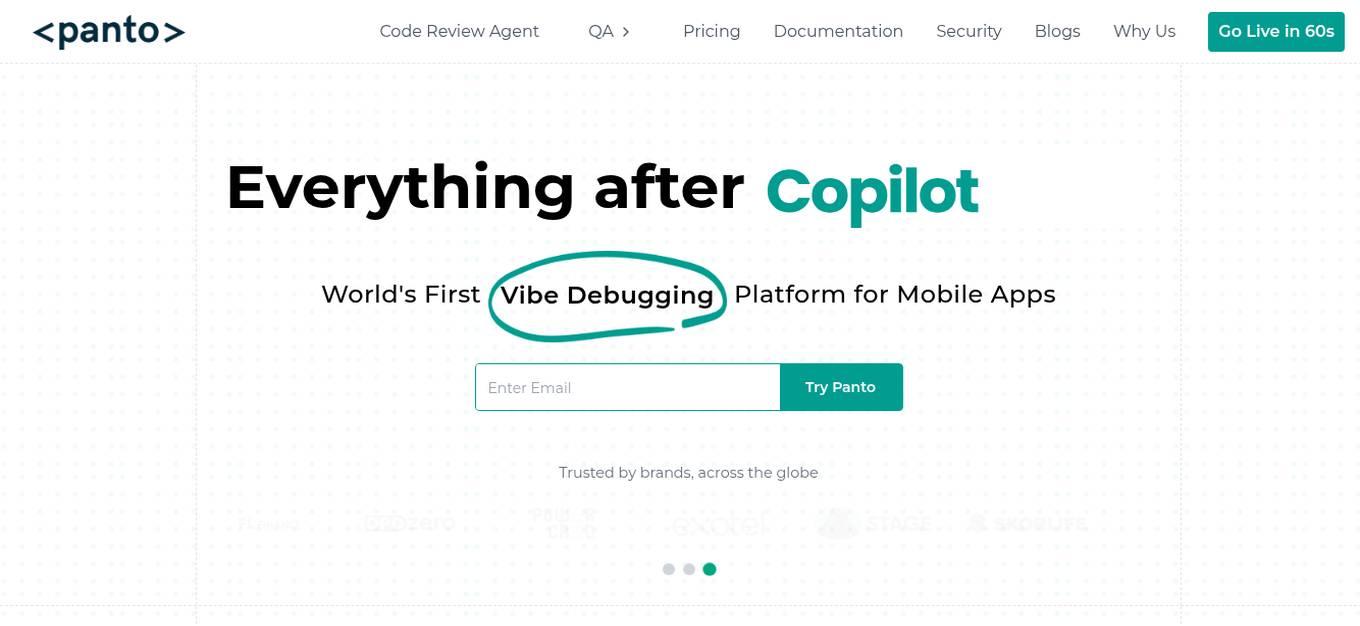
Panto AI
Panto AI is an AI automation testing platform that offers a comprehensive solution for mobile app testing, combining dynamic code reviews, code security checks, and QA automation. It allows users to create, execute, and run mobile test cases in natural language, ensuring reliable and efficient testing processes. With features like self-healing automation, real device testing, and deep failure visibility, Panto AI aims to streamline the QA process and enhance app quality. The platform is designed to be platform-agnostic and supports various integrations, making it suitable for diverse mobile app environments.
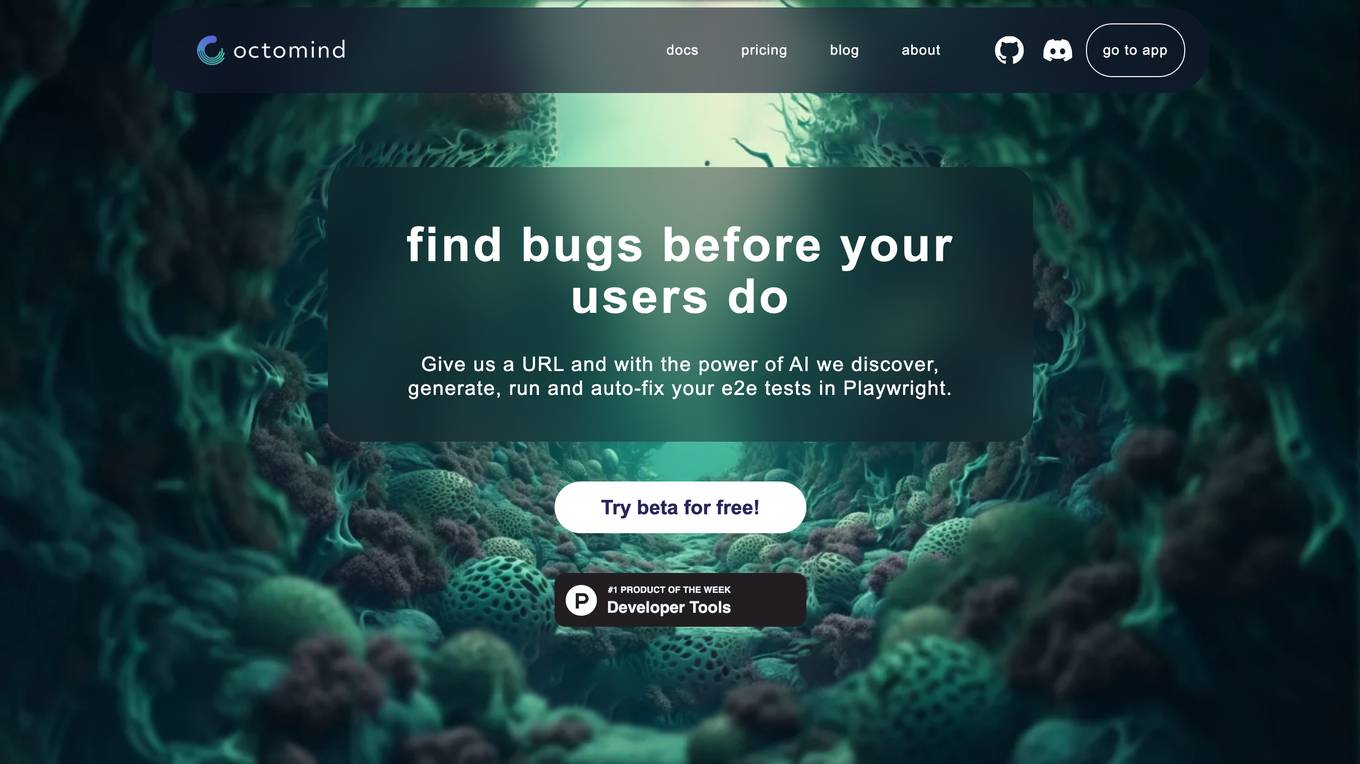
Octomind
Octomind is an AI-powered QA platform that provides automated end-to-end testing for web applications. It offers features such as self-healing tests, visual debugging, and stable test runs. Octomind is designed for early-stage and fast-growing SaaS or AI startups with small engineering teams, aiming to improve product quality and speed by catching regressions before they reach users. The platform is trusted by thousands of engineering teams worldwide and is SOC-2 certified, ensuring privacy and security.
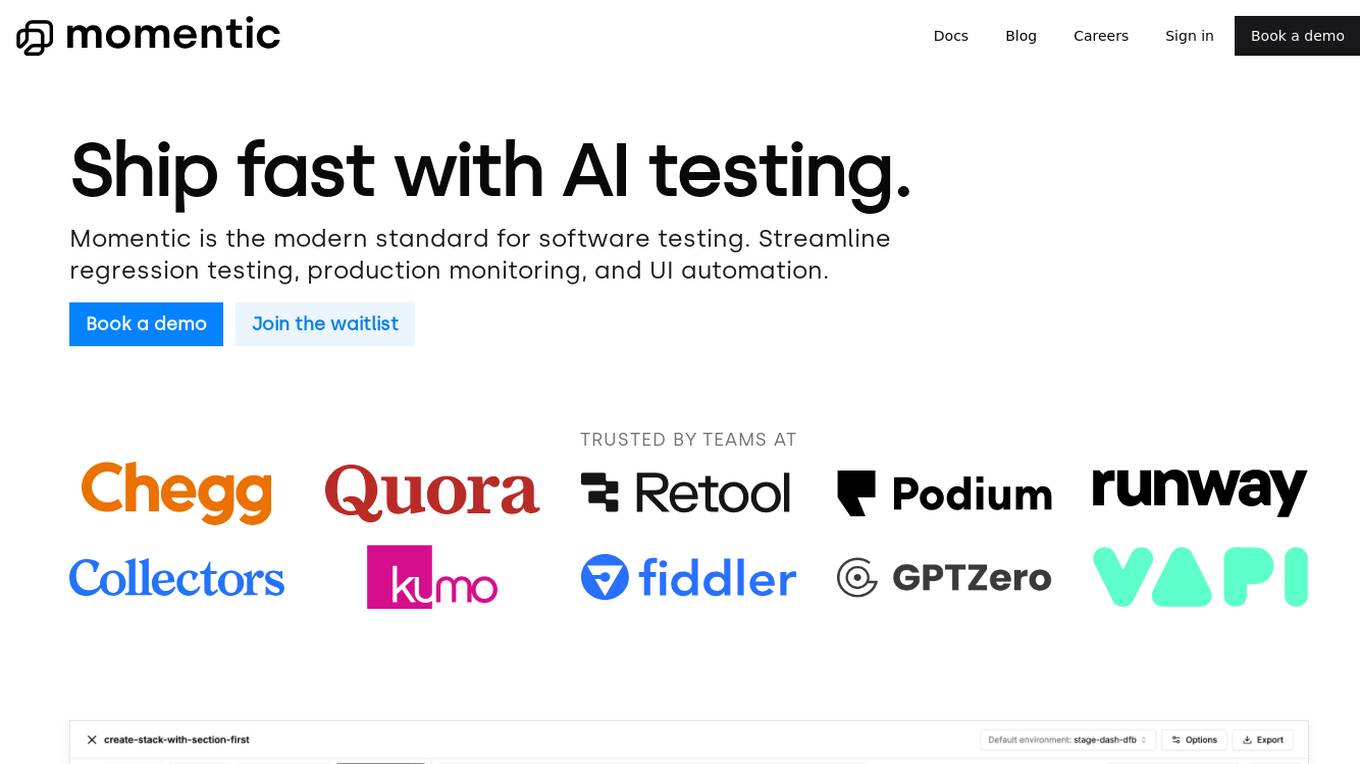
Momentic
Momentic is an AI testing tool that offers automated AI testing for software applications. It streamlines regression testing, production monitoring, and UI automation, making test automation easy with its AI capabilities. Momentic is designed to be simple to set up, easy to maintain, and accelerates team productivity by creating and deploying tests faster with its intuitive low-code editor. The tool adapts to applications, saves time with automated test maintenance, and allows testing anywhere, anytime using cloud, local, or CI/CD pipelines.
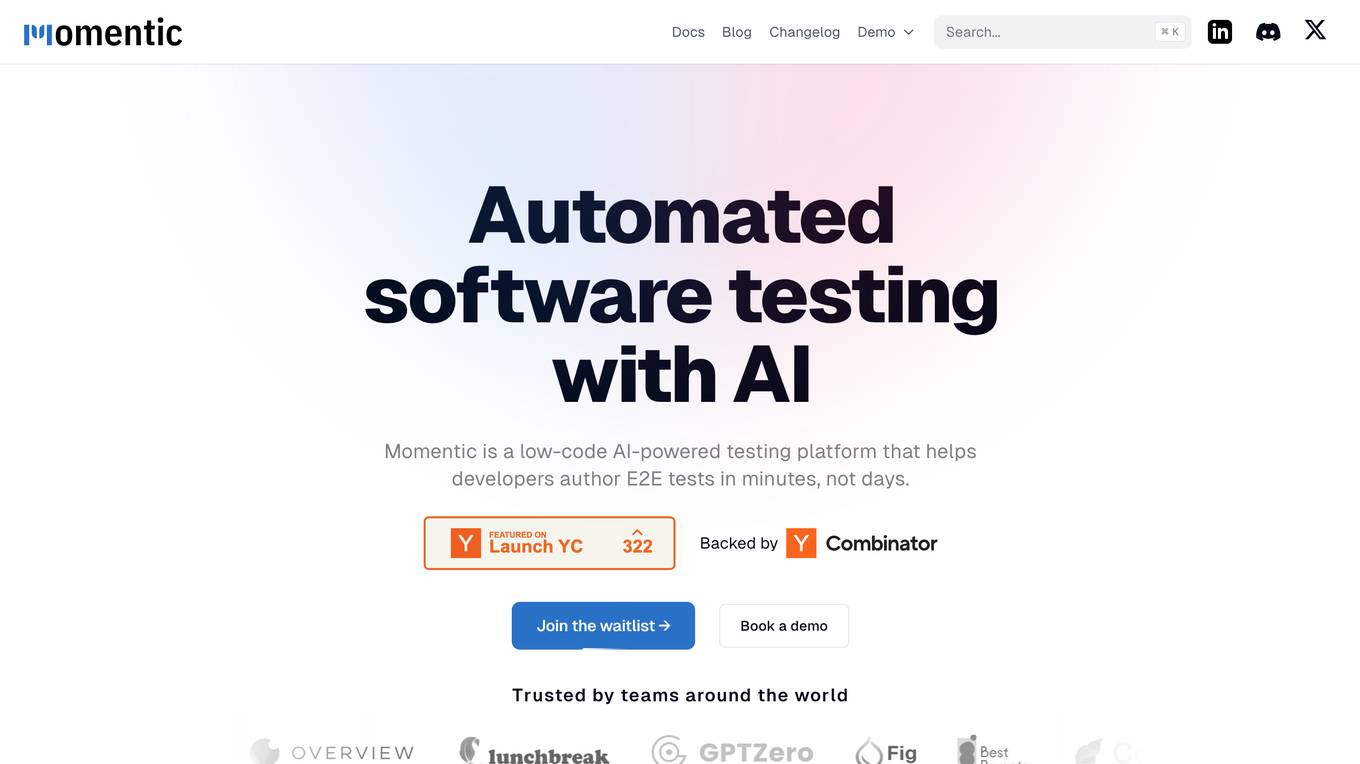
Momentic
Momentic is a purpose-built AI tool for modern software testing, offering automation for E2E, UI, API, and accessibility testing. It leverages AI to streamline testing processes, from element identification to test generation, helping users shorten development cycles and enhance productivity. With an intuitive editor and the ability to describe elements in plain English, Momentic simplifies test creation and execution. It supports local testing without the need for a public URL, smart waiting for in-flight requests, and integration with CI/CD pipelines. Momentic is trusted by numerous companies for its efficiency in writing and maintaining end-to-end tests.
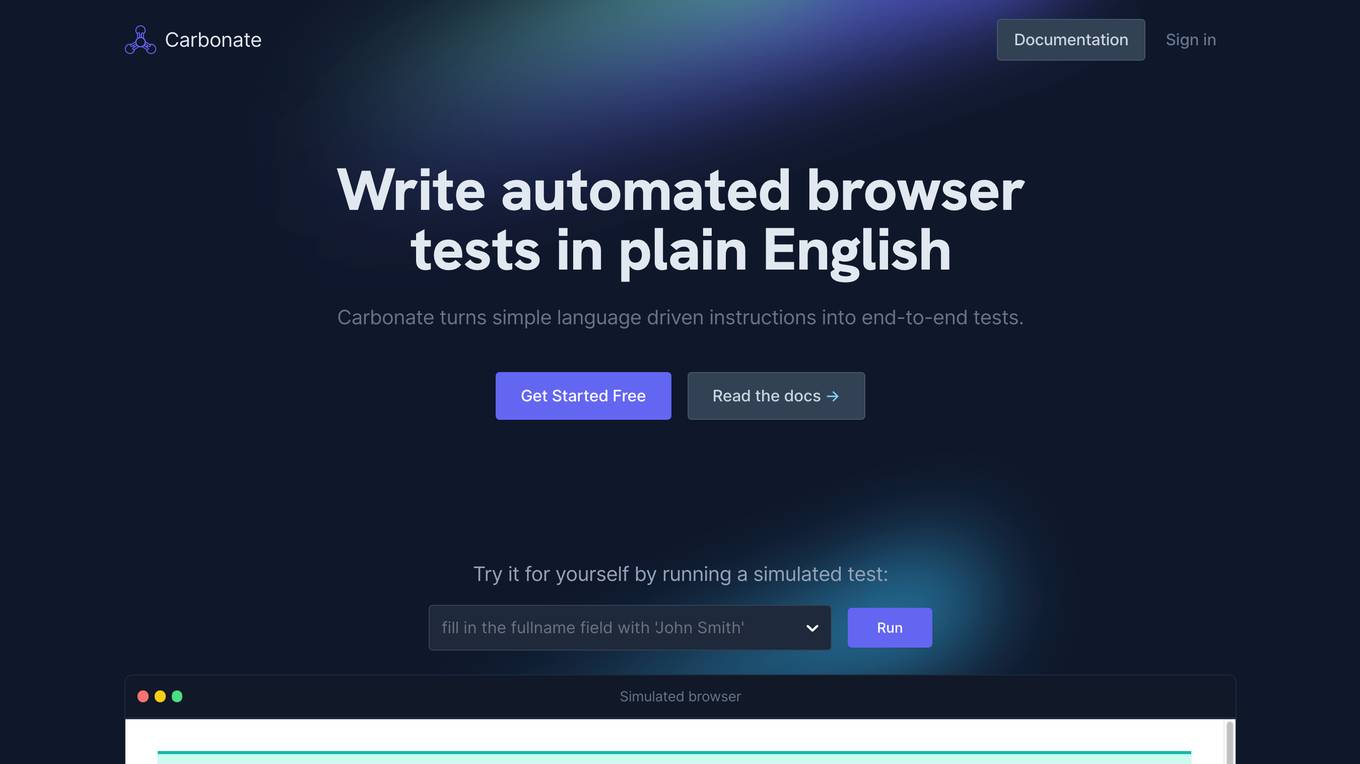
Carbonate
Carbonate is an AI-driven automated end-to-end testing tool that allows users to create auto-healing tests without the need for coding. By recording interactions in a remotely controlled browser, Carbonate's unique AI engine generates test scripts that adapt to changes in the application. With features like fast test creation, self-healing tests, and cloud test running, Carbonate simplifies the testing process and provides detailed insights for debugging. The tool supports multiple programming languages and offers a user-friendly interface for creating and running tests efficiently.

Langtail
Langtail is a platform that helps developers build, test, and deploy AI-powered applications. It provides a suite of tools to help developers debug prompts, run tests, and monitor the performance of their AI models. Langtail also offers a community forum where developers can share tips and tricks, and get help from other users.
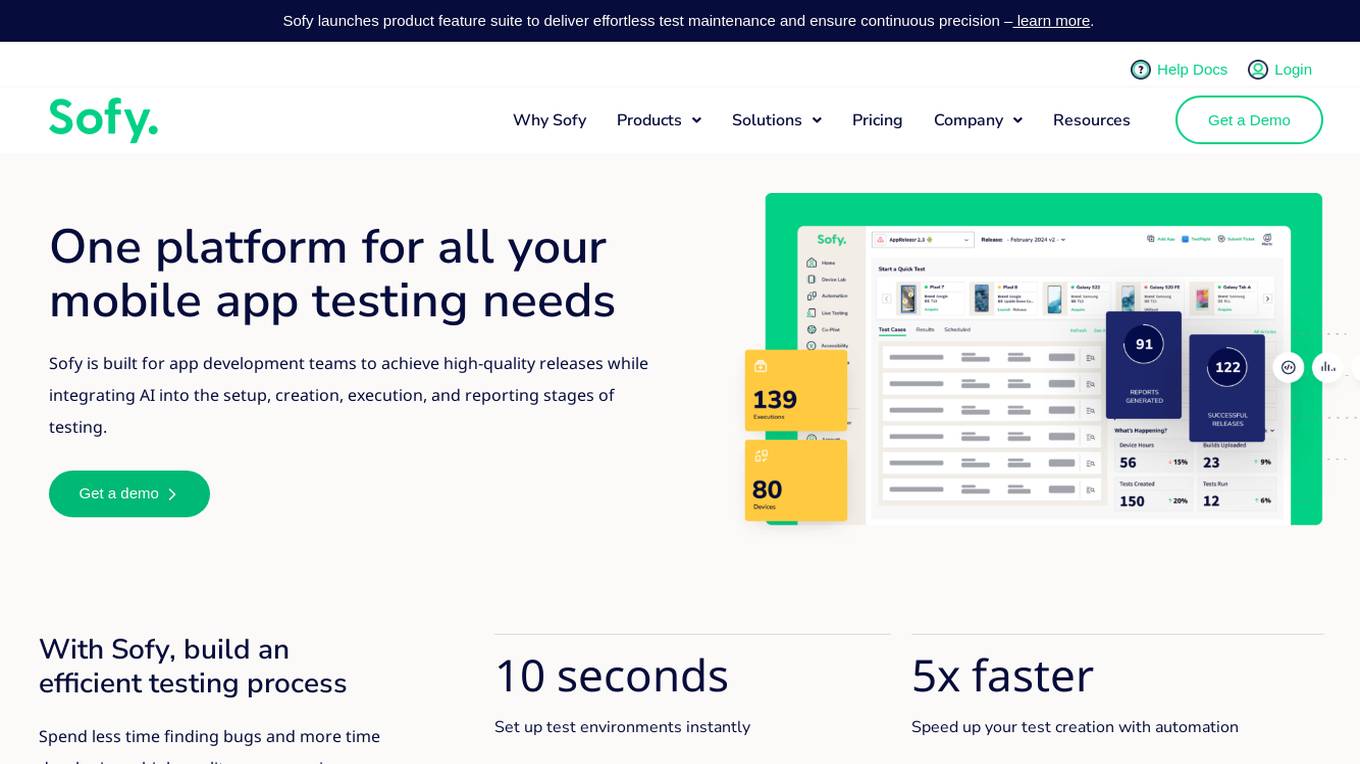
Sofy
Sofy is a revolutionary no-code testing platform for mobile applications that integrates AI to streamline the testing process. It offers features such as manual and ad-hoc testing, no-code automation, AI-powered test case generation, and real device testing. Sofy helps app development teams achieve high-quality releases by simplifying test maintenance and ensuring continuous precision. With a focus on efficiency and user experience, Sofy is trusted by top industries for its all-in-one testing solution.
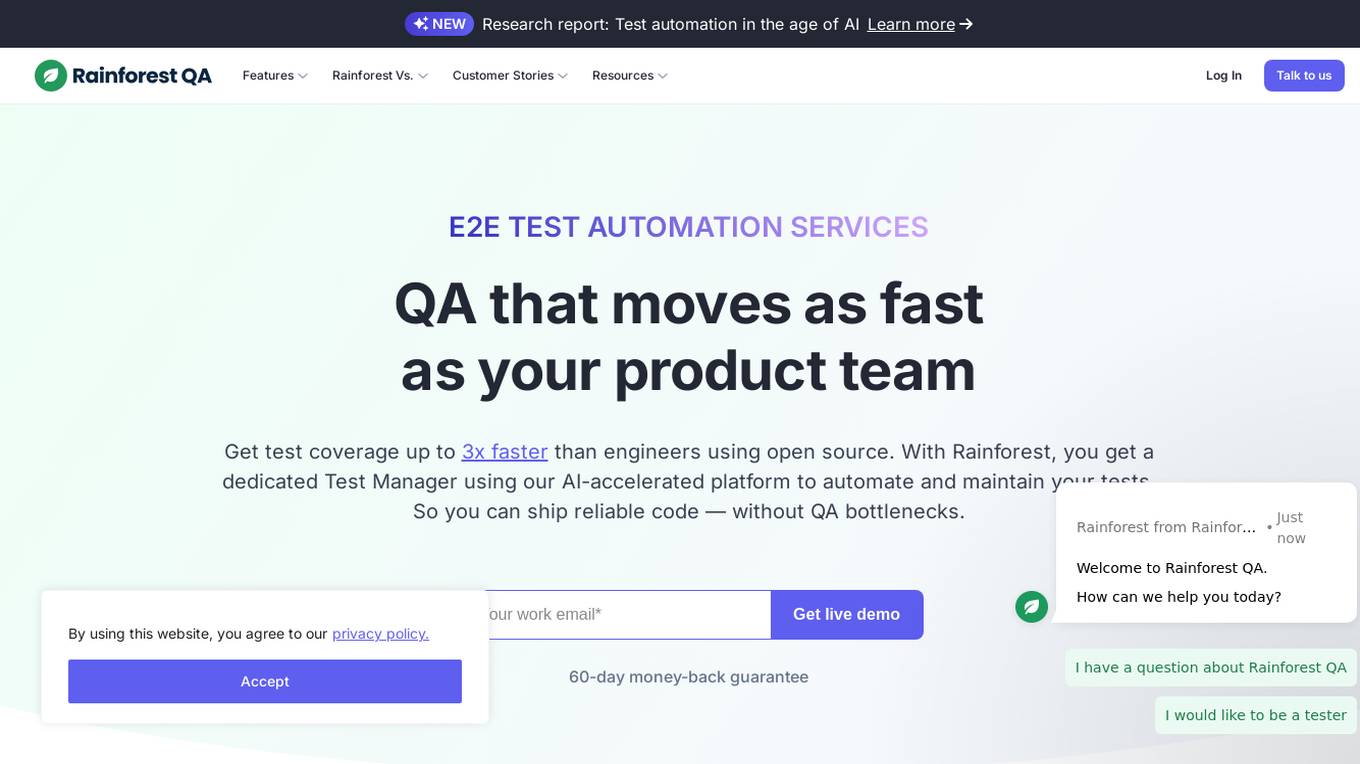
Rainforest QA
Rainforest QA is an AI-powered test automation platform designed for SaaS startups to streamline and accelerate their testing processes. It offers AI-accelerated testing, no-code test automation, and expert QA services to help teams achieve reliable test coverage and faster release cycles. Rainforest QA's platform integrates with popular tools, provides detailed insights for easy debugging, and ensures visual-first testing for a seamless user experience. With a focus on automating end-to-end tests, Rainforest QA aims to eliminate QA bottlenecks and help teams ship bug-free code with confidence.
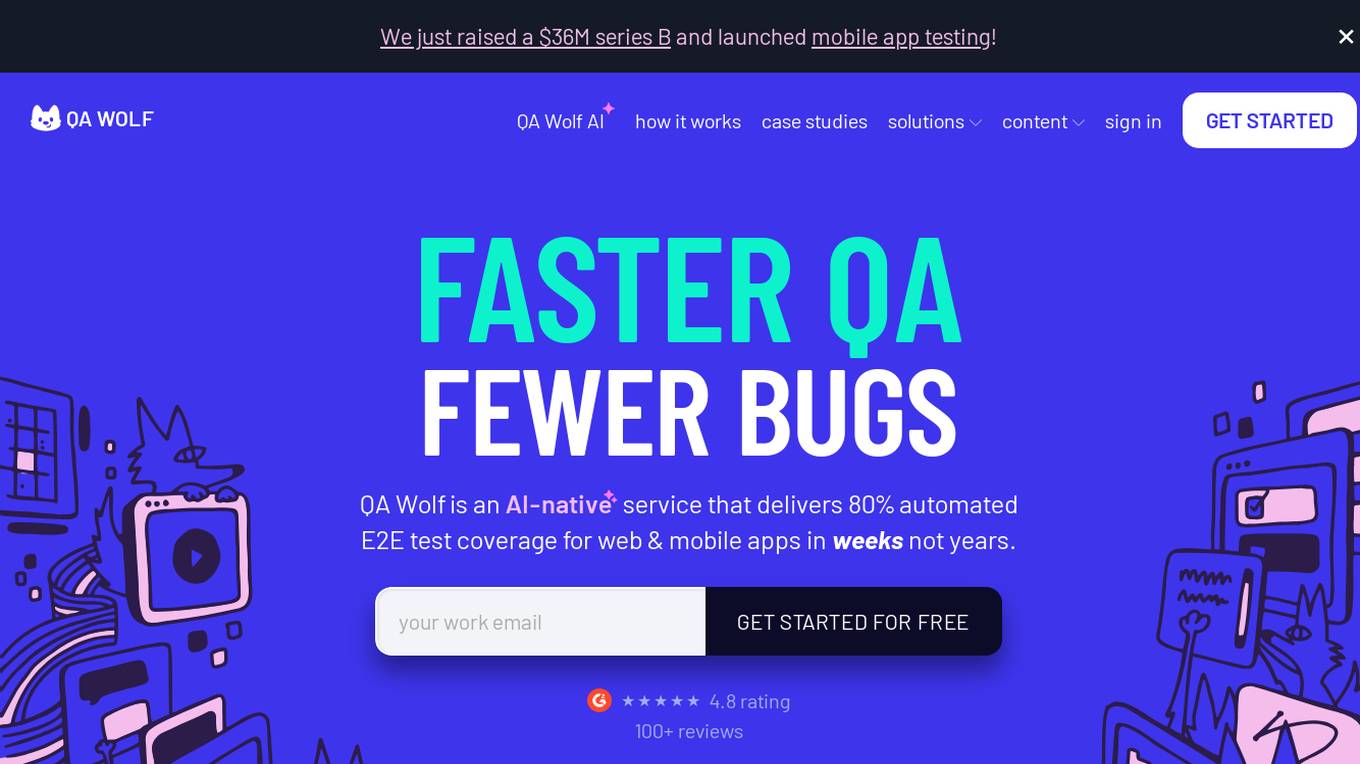
QA Wolf
QA Wolf is an AI-native service that delivers 80% automated end-to-end test coverage for web and mobile apps in weeks, not years. It automates hundreds of tests using Playwright code for web and Appium for mobile, providing reliable test results on every run. With features like 100% parallel run infrastructure, zero flake guarantee, and unlimited test runs, QA Wolf aims to help software teams ship better software faster by taking QA completely off their plate.
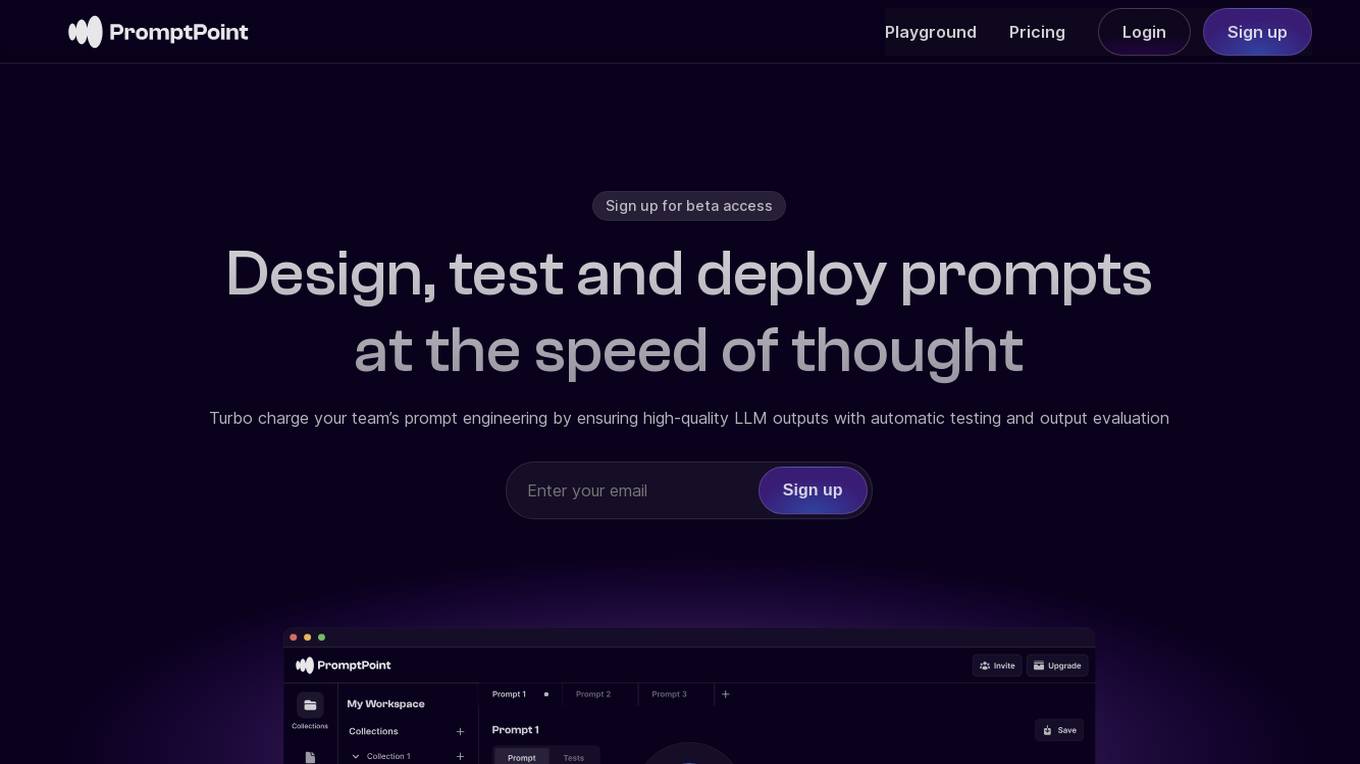
PromptPoint Playground
PromptPoint Playground is an AI tool designed to help users design, test, and deploy prompts quickly and efficiently. It enables teams to create high-quality LLM outputs through automatic testing and evaluation. The platform allows users to make non-deterministic prompts predictable, organize prompt configurations, run automated tests, and monitor usage. With a focus on collaboration and accessibility, PromptPoint Playground empowers both technical and non-technical users to leverage the power of large language models for prompt engineering.

OptiMonk
OptiMonk is a conversion optimization toolset tailored for busy marketers, empowering you to boost sales through website personalization, popups and A/B testing. It offers a range of features including pre-designed templates, actionable CRO tactics, and integrations with popular marketing tools. OptiMonk's AI-powered capabilities enable users to create personalized popups, product descriptions, and A/B tests to maximize conversions.

Webflow Optimize
Webflow Optimize is a website optimization and personalization tool that empowers users to create, edit, and manage web content with ease. It offers features such as A/B testing, personalized site experiences, and AI-powered optimization. With Webflow Optimize, users can enhance their digital experiences, experiment with different variations, and deliver personalized content to visitors. The platform integrates seamlessly with Webflow's visual development environment, allowing users to create and launch variations without complex code implementations.
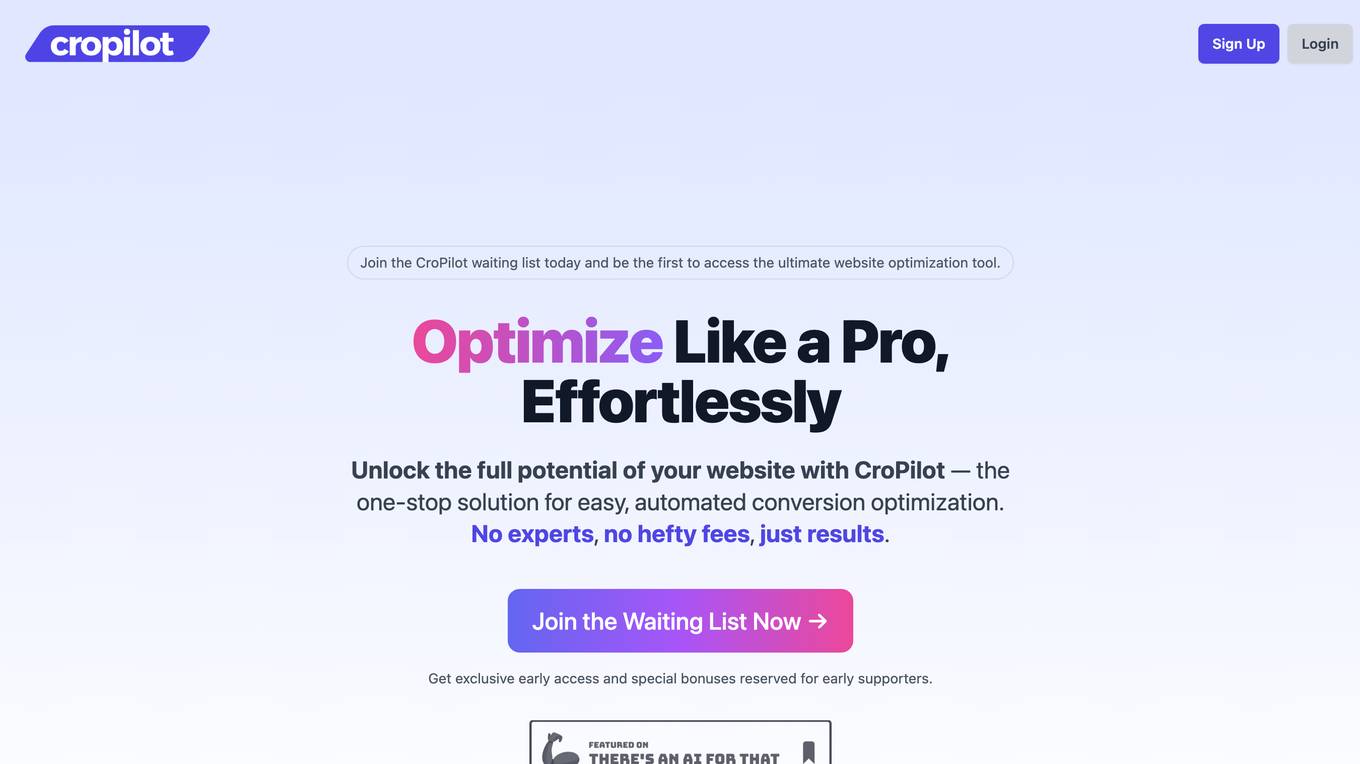
CroPilot
CroPilot is an AI-powered website optimization tool that helps businesses increase conversions and improve user experience. It offers a range of features including audience targeting, goal-oriented optimization, AI-driven insights, heatmap analysis, automated analytics reporting, and A/B testing. CroPilot is easy to use and integrates seamlessly with popular platforms like WordPress, WooCommerce, and Shopify. It is suitable for businesses of all sizes and can complement existing optimization tools.

More Views AI
More Views AI is an AI tool designed to help YouTube content creators increase their view count by testing different video settings. The tool uses artificial intelligence to analyze video titles, suggest variations, and run A/B tests to determine the best-performing title. It offers features such as automatic A/B toggling, performance tracking, views optimization, AI-generated title suggestions, and thumbnail testing. Users can connect their YouTube account, set up experiments in seconds, and let the algorithm optimize their video titles to attract more views.

Reflect
Reflect is an AI-powered test automation tool that revolutionizes the way end-to-end tests are created, executed, and maintained. By leveraging Generative AI, Reflect eliminates the need for manual coding and provides a seamless testing experience. The tool offers features such as no-code test automation, visual testing, API testing, cross-browser testing, and more. Reflect aims to help companies increase software quality by accelerating testing processes and ensuring test adaptability over time.

Functionize
Functionize is an AI-powered test automation platform that helps enterprises improve their product quality and release faster. It uses machine learning to automate test creation, maintenance, and execution, and provides a range of features to help teams collaborate and manage their testing process. Functionize integrates with popular CI/CD tools and DevOps pipelines, and offers a range of pricing options to suit different needs.

Hubble
Hubble is an enterprise user research platform designed to streamline research workflows for world-class enterprises. It offers a full spectrum of research capabilities, including unmoderated and moderated research, AI interviews, surveys, and in-product research. With powerful analysis and synthesis features, premium participant recruitment, and cutting-edge AI capabilities, Hubble empowers teams to make data-driven decisions and validate design choices efficiently.

HowsThisGoing
HowsThisGoing is an AI-powered application designed to streamline team communication and productivity by enabling users to set up standups in Slack within seconds. The platform offers features such as automatic standups, AI summaries, custom tests, analytics & reporting, and workflow scheduling. Users can easily create workflows, generate AI reports, and track team performance efficiently. HowsThisGoing provides unlimited benefits at a flat price, making it a cost-effective solution for teams of all sizes.
1 - Open Source AI Tools
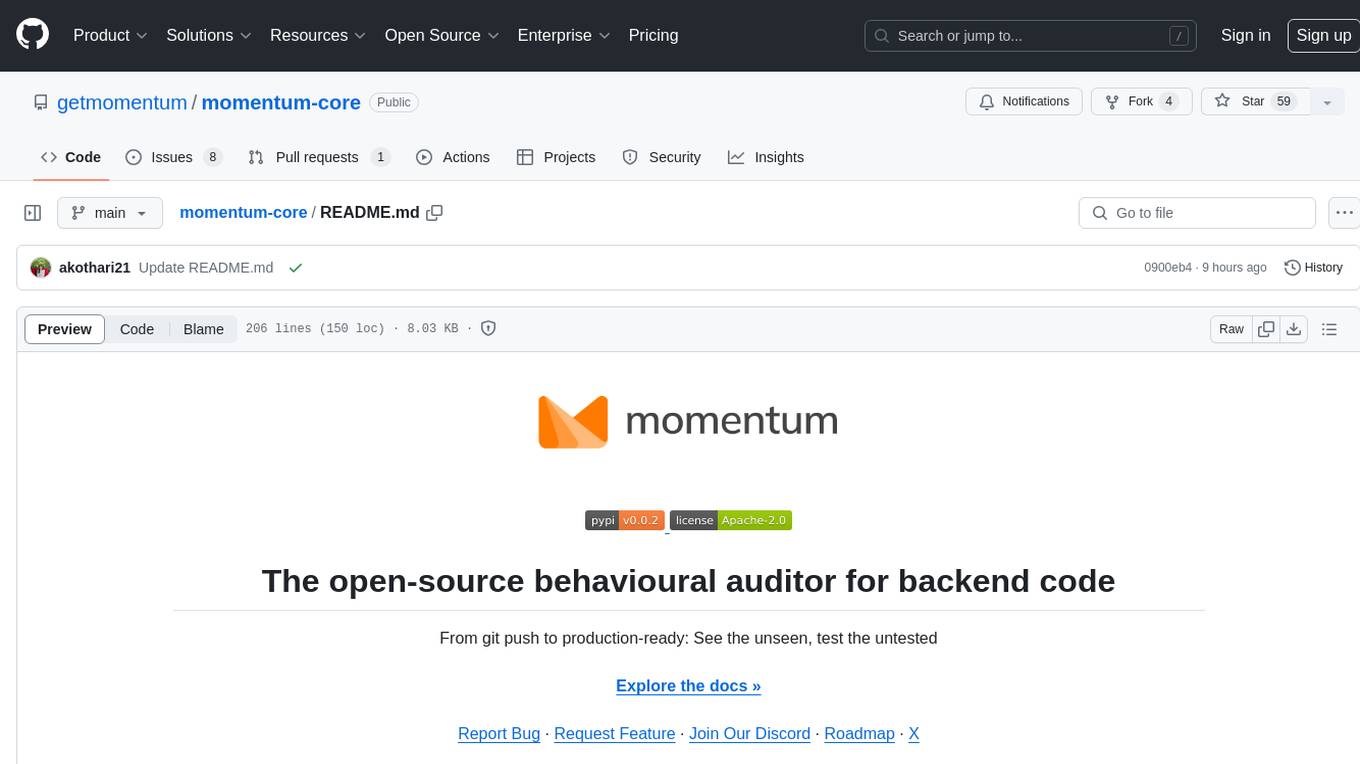
momentum-core
Momentum is an open-source behavioral auditor for backend code that helps developers generate powerful insights into their codebase. It analyzes code behavior, tests it at every git push, and ensures readiness for production. Momentum understands backend code, visualizes dependencies, identifies behaviors, generates test code, runs code in the local environment, and provides debugging solutions. It aims to improve code quality, streamline testing processes, and enhance developer productivity.
20 - OpenAI Gpts
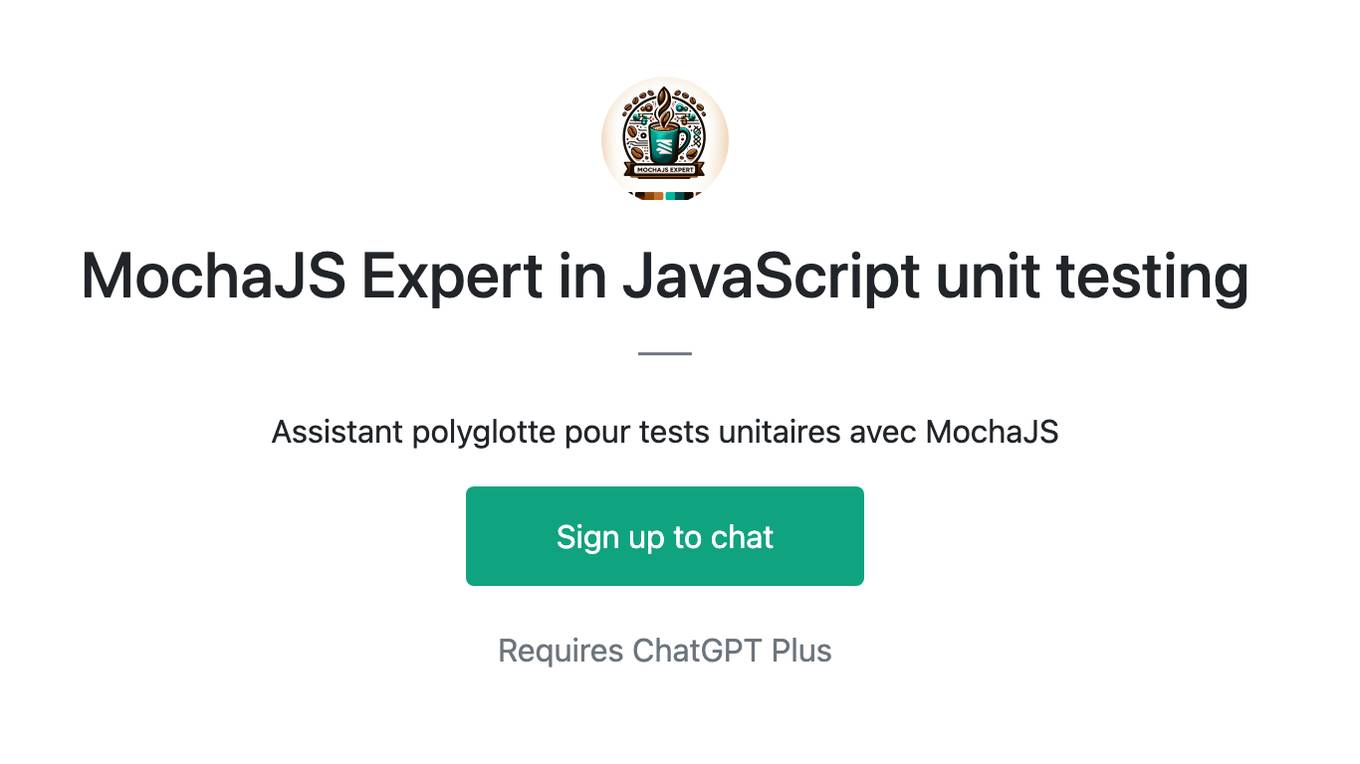
MochaJS Expert in JavaScript unit testing
Assistant polyglotte pour tests unitaires avec MochaJS
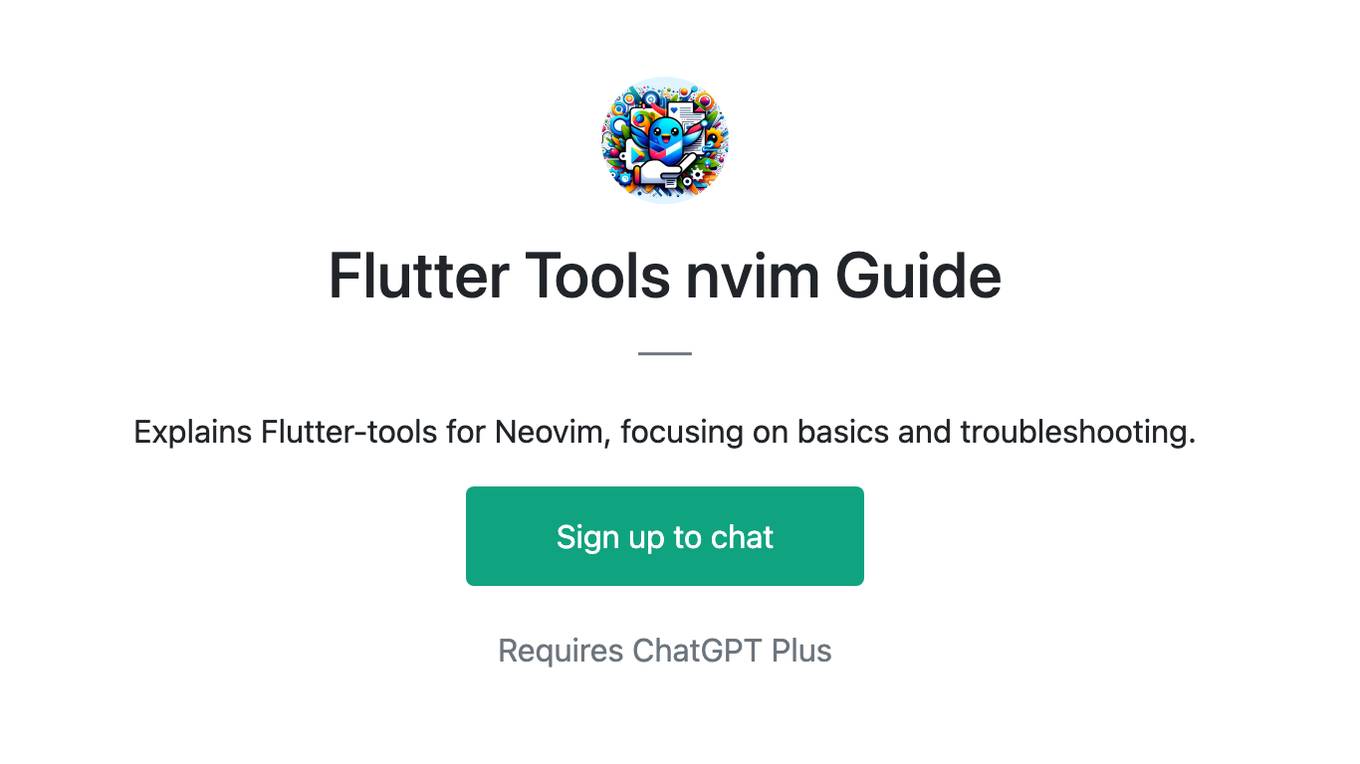
Flutter Tools nvim Guide
Explains Flutter-tools for Neovim, focusing on basics and troubleshooting.

Consulting & Investment Banking Interview Prep GPT
Run mock interviews, review content and get tips to ace strategy consulting and investment banking interviews

Dungeon Master's Assistant
Your new DM's screen: helping Dungeon Masters to craft & run amazing D&D adventures.

Database Builder
Hosts a real SQLite database and helps you create tables, make schema changes, and run SQL queries, ideal for all levels of database administration.

Restaurant Startup Guide
Meet the Restaurant Startup Guide GPT: your friendly guide in the restaurant biz. It offers casual, approachable advice to help you start and run your own restaurant with ease.

Community Design™
A community-building GPT based on the wildly popular Community Design™ framework from Mighty Networks. Start creating communities that run themselves.

Code Helper for Web Application Development
Friendly web assistant for efficient code. Ask the wizard to create an application and you will get the HTML, CSS and Javascript code ready to run your web application.

Creative Director GPT
I'm your brainstorm muse in marketing and advertising; the creativity machine you need to sharpen the skills, land the job, generate the ideas, win the pitches, build the brands, ace the awards, or even run your own agency. Psst... don't let your clients find out about me! 😉

Pace Assistant
Provides running splits for Strava Routes, accounting for distance and elevation changes
